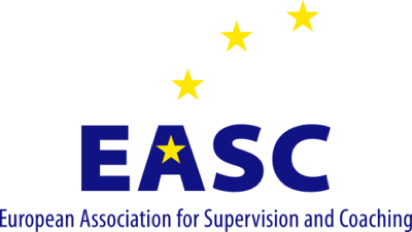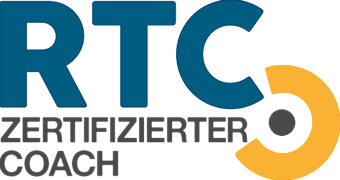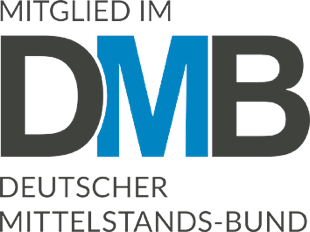



Fulfill your ideas and wishes.
My professional experience
The opposite of theory is not practice - but theory and practice
Experience is a term that refers to the knowledge or skills that one acquires through direct active participation, doing or observing events or activities over the long term. It is what you learn through experience and trial and error, as opposed to theoretical knowledge gained through books, lessons or stories. Work experience is incredibly valuable as it provides not only specialized knowledge, but also practical skills and insights into the world of work.
The profitable management of business units and companies
The highly profitable management of a company or business unit required a combination of strategic thinking, efficient processes, reliable leadership, and a deep understanding of the applications in the market. A clear corporate strategy and the involvement of all employees in the implementation process makes all the difference! My leadership skills, which are based on values and principles and are geared towards a few, but fundamental financial indicators, are the kind of management that I have internalized and exemplified.
Restructuring of companies
As part of company acquisitions, I have successfully restructured three companies with my management teams and then brought them sustainably into an EBIT range of twelve to fourteen percent.
I am happy to pass on to you the knowledge of how I analyzed, managed, and implemented this process using a few key business figures. It includes highs and lows, important decisions and, as a result, the certainty that sweat and perseverance have paid off for society, the company, many families and yourself. Afterwards, it is a feeling like after a very strenuous, athletic twenty-kilometer hike, it is uplifting and feels good!
Innovation management
Innovation management comprises various activities and phases to develop and successfully implement new ideas, products, services or processes. Effective innovation management required me and my teams to have a supportive corporate culture that encourages creativity, risk-taking and collaboration. I won a considerable number of innovation awards with my teams and was a lecturer on innovation management at the University of Freiburg for several years.
Sales management
What does it take to be successful in sales? To fill up the tank in the evening, the next day, to experience the way in the eye of the customer for years, to win and inspire customers with transparency, speed and reliability. Being involved in projects that are very relevant for the company, motivating the sales team emotionally at eye level and also through incentive systems, and strategically optimizing sales processes through CRM systems - all this was my daily routine for several years. Giving constructive feedback to the sales staff on targets and their achievement in order to constantly develop their skills, including through training measures, is that certain “something” that has consistently set our sales performance apart from the competition. For the individual sales employee, success and failure lie side by side; learning to reflect and learn from victory and defeat is what I have taken away from this time.
Product management
Knowing the market in detail and strategically planning for success. Easy to say, but until all the small and large wheels in the company are also turning operationally, it is necessary to have a good overview of all the resources, emotions and political components outside and inside the company. Social skills are a success factor, especially in project and product management. The desire to be close to the customer application and to be able to analyze its feasibility in depth is another. By leading cross-functional teams, this stage of my career was an ideal “training ground” for me on the way to leadership roles in senior management.
Development
“A good developer is one who generally meets the planned launch dates”. This sentence has occupied me for a long time and we have tested several tools and philosophies to come close to this claim in an institute. Since then, some technologies, such as digitalization or AI, have been added, but the basic rules have changed little, too many product life cycles have to be maintained, new product families have to be launched on the market promptly. How does each individual developer organize their valuable know-how, their budget and their timeline?
M&A
Companies need to know why they are seeking a takeover or merger, be it for market expansion, diversification or the acquisition of new technologies. A thorough review of the target company has always been essential for me. This involved financial, legal, tax and operational aspects to minimize risks and determine the acceptable value of a company. After the transaction was completed, the integration of our two companies was crucial to my success, as the first step was to bring two dissimilar companies together. This involved merging processes, systems, and cultures in order to position the desired synergies profitably.
Management of subsidiaries in the USA
It was both surprising and amusing to me how different corporate cultures between the German parent company and the American subsidiary led to misunderstandings. Effective communication between the parent company and the subsidiary was critical to ensure everyone was on the same page, words like the Yanks and the Germans were banned from communication...
During this time, I also learned to align the strategic goals of the parent company with the local market conditions and requirements of the subsidiary. I can also tell some instructive anecdotes about life as an expat with a family.
Management of start-ups
Within a huge company, I was part of the management team for internal start-ups.
These start-ups focused on innovative and disruptive technologies or business models and strived for rapid and exponential growth. The financing was set up internally, but we expected high returns and were prepared to take higher risks. The traditional parts of the company were called upon to make collaborative contributions and were challenged to flatten their traditional hierarchies on a project-by-project basis. With regard to “what is too much” in terms of resources and “what is too little” in terms of the first cash flow, I can pass on some of my experiences.
Long time personal experiences in small and medium-sized companies as well as in large international corporations
Why was I successful in both structures? I quickly realized that good companies, regardless of their size, established optimized processes to reduce costs and increase efficiency, evaluating and adapting processes with common sense was my guarantee for success. So what is the difference between the working environments in large and small companies? Your own attitude and your goals - I am happy to pass on my success hypotheses for personal career development to you, these are actually very different depending on your personality and life planning.
Part-time management of a non-profit NPO
For more than 10 years, I headed a joint interest group in the role as leading board member on a part-time basis. In contrast to the private sector, the focus here was not on profit as a target figure, but on technological and systemic progress in a medical field. I realized that an NPO must be at least as profitable, if not more profitable, than an industrial company run an organization with the very limited funds available. Here, creativity was required in terms of efficient processes and external communication to enable a special, talented group of people, to seize greater opportunities in life for them.


